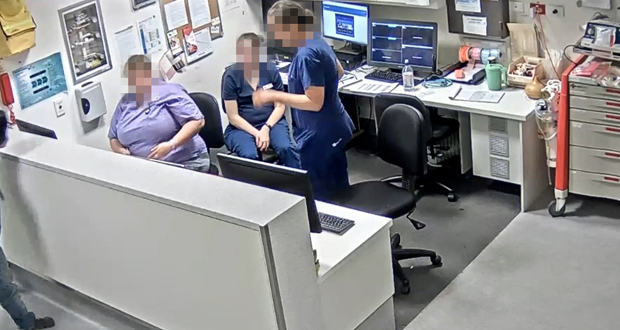There’s a good chance that nurses at the Royal Melbourne Hospital who encountered a threatening patient in the emergency department were dealing with someone who had taken methamphetamine.
Researchers from the University of Melbourne and Melbourne Health tested saliva from patients who sparked a code grey over the course of six months.
Of the 229 valid samples they gathered from point of care tests, 40 per cent tested positive for an illicit substance and of that number 92 per cent tested positive for methamphetamines.
One-fifth of the sample tested positive for two or more substances, seeing 17 per cent testing positive for opiates, 8 per cent for cannabis and 7 per cent for cocaine.
On top of this, only 22 per cent of those who were tested admitted to using illicit substances within the 24 hours prior – pointing to poor self-reporting.
Professor Marie Gerdtz, head of the University of Melbourne’s Department of Nursing, said this research clearly demonstrates the need for point of care saliva testing of these patients by skilled emergency nurses.
“Self-reporting of drug use is unreliable, and our research shows we can’t rely on people who are under the influence to tell us what drugs they have taken,” Gerdtz said.
Associate Professor Jonathan Knott said knowing information around the patient’s drug use was useful for staff to determine treatment strategies.
“These saliva tests can demonstrate quickly and efficiently if there are drugs involved. If there are no drugs and the likely outcome is mental health then staff can work towards putting in place measures for providing the best care,” Knott said.
Royal Melbourne Hospital is working to set up a hub based in its emergency department that will specialise in mental health, drug and alcohol support.
“With the introduction of the Behavioural Assessment Unit three years ago we do have resources to settle patients, however we don’t have strategies in place to help change behaviour long term,” Knott said.
“The crisis hub will create more resources to pathway patients to specialised help,” Associate Professor Knott said.
Researcher George Braitberg said drug use by patients in EDs was a growing problem and “needs to be approached with a different model of care where emergency, mental health, addiction and allied health clinicians work together in the same space, to provide the best care for these patients”.
Do you have an idea for a story?Email [email protected]
 Aged Care Insite Australia's number one aged care news source
Aged Care Insite Australia's number one aged care news source

